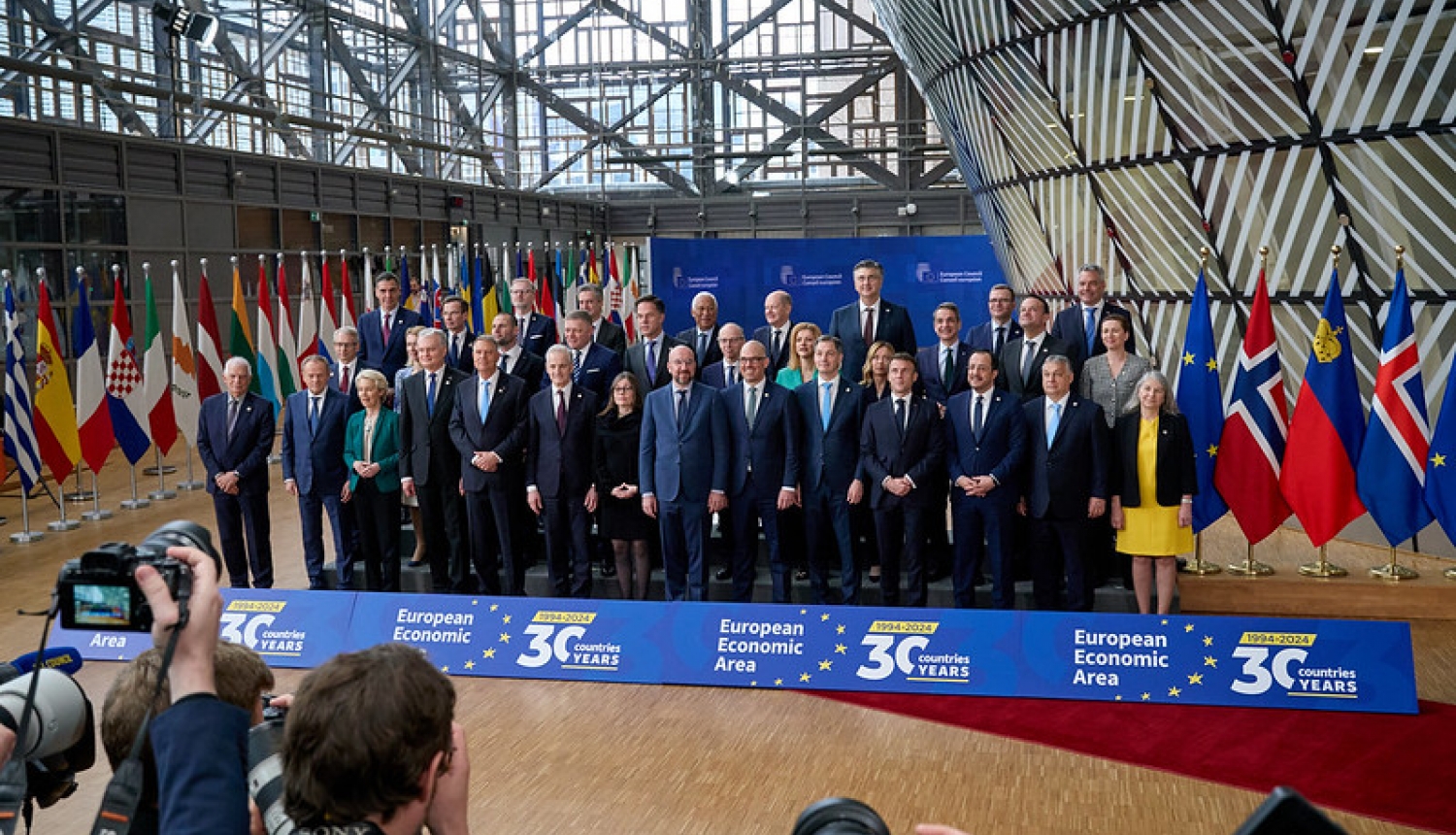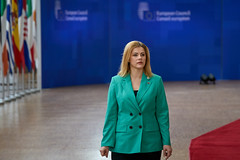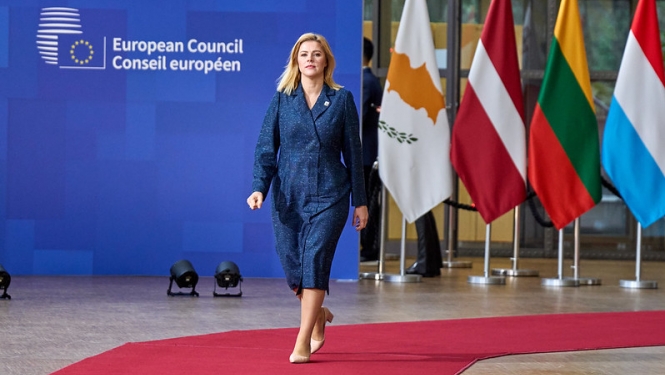"Latvia has succeeded in restricting imports of grain and other agricultural products from Russia and Belarus into the EU. This demonstrates our ability to work together also on other issues to reduce Russia's income and capacity to make war," Prime Minister Evika Siliņa said, commenting on the European Council meeting of 21 - 22 March. This is the first time that, in the EU leaders' format, Latvia raised the issue of the need to include manganese ore in the sanctions against Russia.
During the EU leaders' meeting, the European Commission (EC) presented new proposals regarding high tariffs on Russian and Belarusian agricultural products, thus making it as unprofitable as possible for these goods to enter the EU market, protecting the interests of Latvian and other EU farmers and reducing Russia's revenues. Efforts will continue at European level to find additional ways to support farmers.
During the discussions at the European Council, E.Siliņa also highlighted Latvia's position on the need to include manganese ore and alumina in the sanctions against Russia, as well as addressed the Baltic partners regarding the restriction of manganese ore.
"Latvia was the first country to call for a ban on Russian and Belarusian agricultural products at the European Union level. The new EC proposals mean a significant achievement for Latvia and demonstrate that we can succeed also on other issues, including limiting the transit of manganese ore. During the meeting, proposals were made to improve access to funding for the EU's military industry. It is in the interest of Latvia and the EU to take quick and clear decisions to strengthen our security and develop the EU's defence capabilities, while restraining Russia and supporting Ukraine," said E. Siliņa.
The EU leaders jointly reaffirmed the need to strengthen sanctions against Russia. Latvia has raised the issue of manganese ore this week in the EU Foreign Affairs Council and the European Council. According to E. Siliņa, "Latvia will continue to discuss this issue both in the context of the EU's 14th sanctions package and bilaterally with countries in the Baltic region and beyond." In addition, the Latvian Ports, Transit and Logistics Council will meet next week on 28 March to discuss with the industry the inevitable need for the sector to refocus on new markets.
During the European Council, the EU leaders reaffirmed their readiness to strengthen the defence industry and the EU's defence capabilities. To achieve this, an adequate level of funding is needed and the EU leaders requested the European Commission to report by June on all possible additional forms and sources of funding. It is important for Latvia to facilitate access to finance for defence companies and to promote the integration of Latvian companies into the supply chains of large manufacturers. This week, Prime Minister Evika Siliņa also signed a letter by 14 EU leaders to the European Investment Bank calling for more active financing for the EU's military industry.
Other positive results highlighted by E. Siliņa include the agreement of the EU leaders to start real negotiations on the accession of Ukraine and Moldova to the EU as soon as possible, the opening of accession negotiations with Bosnia and Herzegovina, and the joint agreement on faster and more effective military support to Ukraine.






